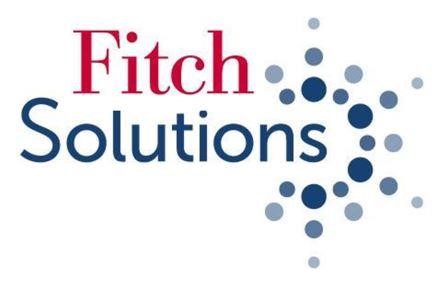Fitch Solutions has revised Ghana’s Gross Domestic Product (GDP) growth rate in 2024 to 3.5%, from the earlier forecast of 3.7%.
This is however higher than the expected 2.7% growth rate in 2023, but lower than the pre-Covid-19 pandemic average of 5.0%.
According to the UK-based firm, it expects that the Ghanaian economy will enter a recovery phase in 2024, driven by stronger private consumption.
“We expect that the Ghanaian economy will enter a recovery phase in 2024, driven by stronger private consumption”.
“Soaring consumer price inflation over 2022-23 – due to the sharp sell-off of the Ghanaian cedi – weakened purchasing power of households and weighed on domestic consumption. However, we expect that price growth will moderate from an average of 40.3% in 2023 to 17.8% in 2024, driven by statistical base effects and more favourable exchange rate dynamics, it pointed out.

Indeed, it said the government will make progress regarding the restructuring of Ghana’s external debt under the G20 Common Framework in the coming quarters.
It added that a more expansionary fiscal stance will inject additional demand into the economy.
Growth in final quarter of 2023 to remain subdued
It further stated that growth in the final quarter of 2023 will remain subdued.
This is because Ghana’s purchasing managers’ index (PMI) for October and November remained broadly in line with quarter 3, 2023 – averaging 51.1 – pointing to only a slight expansion in the manufacturing sector (PMI values above 50 represent an expansion).
Meanwhile, both consumer and business confidence remained subdued going into quarter 4, 2023, suggesting that a notable recovery in domestic demand is unlikely at the end of 2023.
National accounts data published by Ghana Statistical Service shows that economic growth decelerated sharply to just 2.0% year-on-year in quarter 3, 2023 – from 3.2% in the preceding quarter – marking the weakest outturn since quarter 3, 2020 when the economy contracted by 3.5% due to the Covid-19 pandemic.
The slowdown in growth was primarily caused by a deeper contraction in the secondary sector – as a result of a downturn in the oil and gas industry – and weaker conditions in the services industry.
Latest Stories
-
Ghana@68: May our future be filled with happiness, positive transformation – Bawumia
4 minutes -
Bawumia calls for unity as Ghana marks 68th Independence anniversary
17 minutes -
CENDLOS Executive Director Nana Gyamfi Adwabour resigns
17 minutes -
Posterity will not accept our failures – President Mahama
20 minutes -
Gov’t to release funds for industries under 24-hour economy – Trade Minister
42 minutes -
Armah-Kofi Buah calls for deep introspection and renewed path towards prosperity
1 hour -
2 injured in clash between small-scale miners at Akrokerri
1 hour -
From Coup to Glory: How Nkrumah’s Name Outlived his Opponents
1 hour -
Joyce Blessing thrills Adom TV’s Fufuo Party patrons with stellar performance
2 hours -
Ghana Month: Ethnic groups in Ghana and their distribution
2 hours -
See colourful photos of Ghana’s 68th Independence Day Anniversary celebration
3 hours -
Nigerian senator suspended after making sexual harassment claims
3 hours -
Mahama visits Volta tidal wave victims after Independence Day celebration
3 hours -
Sanitation offenders will not go unpunished – Ashanti Regional minister
3 hours -
Experts urge stronger cybersecurity training, laws to safeguard journalists
3 hours

